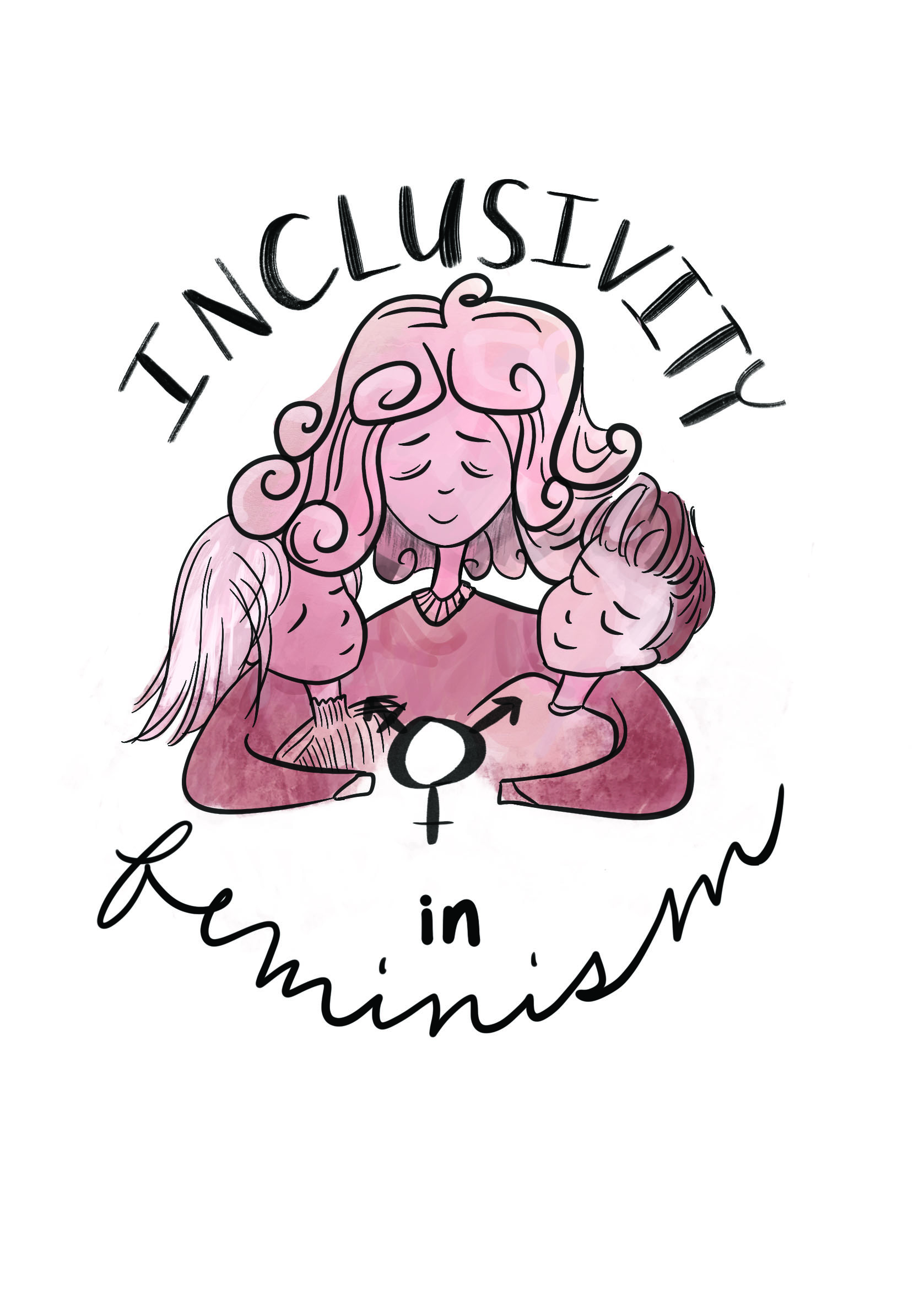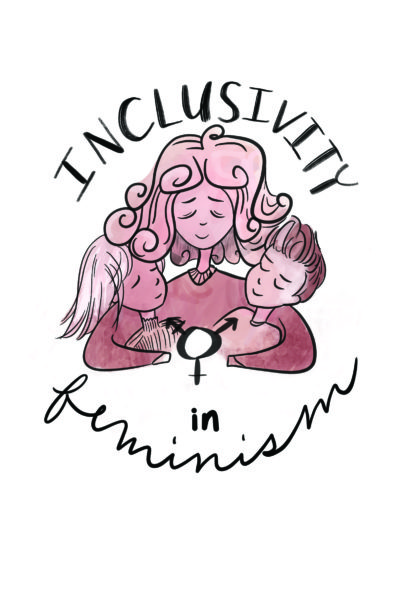
For as long as I can remember, “feminist” has felt like a dirty word in my mouth.
I can’t remember when it first became a way I described myself. It seemed like a no-brainer to me. I was always taught that people of all genders were equal. Why wouldn’t I identify as someone who believes in the “equality of the sexes”?
It doesn’t surprise me that the country is split on whether or not they identify as feminists, since we can’t even agree on what it means. This divide becomes especially apparent along gender identity and party lines: according to a CBS poll, for example, nearly 40 percent of Republicans viewed feminism as a term used to “blame men for women’s challenges.” Comparatively, nearly 70 percent of Democrats viewed it as a term to describe the “political, economic and social equality among the sexes.”

The misunderstanding surrounding the term “feminism” is, to a certain extent, understandable. Someone who hasn’t taken the time to look up the definition of the term could easily assume it means that females are superior.
However, this is far from the reality of what feminism is. Sure, like any other movement, there are a small number of radicals (dubbed “Feminazis” by the far-right), who supposedly believe that women are superior. However, this perspective goes against the basic definition (equality of the sexes), and is also used to dismiss feminism as a whole. Even though the vast majority of feminists view feminism as synonymous with gender equality, this small group warps people’s perceptions of what feminists stand for.
Such misconceptions, unfortunately, are not unique to feminism. Take “Black Lives Matter,” for example. A movement dedicated to ending police brutality and fighting for black individuals to be recognized as and treated as equals, has been perceived as black supremacy.
Even the name of the organization, a simple statement that black lives mean something, is controversial enough to ignite an argument. Feminism, a simple statement that women are equal to men, is no exception. People against such movements will argue that all lives matter. All ethnicities matter. All genders matter. And they’re not wrong.
In a perfect world, we could all call ourselves egalitarians and that would mean the same thing. But that completely omits the acknowledgement of marginalized groups. The reality is that women, especially queer women and women of color, are currently a marginalized group. Disputes over the extent of societal disadvantages aside, it’s clear that women are paid less, promoted less, assaulted more. The term “feminism” is so important because, like Black Lives Matter, it clearly identifies the group that is currently being oppressed in its name and works to lessen that gap.
Aside from the outward misconceptions, there are also many people who agree with feminism in principle but not in practice. While there are radical differences in what it means to be a feminist, there are more subtle disagreements, too, on what social equality means for women. Does it mean decriminalizing sex work? Legalizing abortions? Abolishing dress codes?
“Everyone should subscribe to the ideal of feminism”
Despite the many nuances within the definition of what it means to be a feminist, everyone should subscribe to the ideal of feminism. While people have different ideas of how to achieve gender equality, all of the changes being pushed for, big and small, work towards the much larger end-goal. If we allow ourselves to be blinded over smaller disputes, then we are unable to see the bigger picture.
At the same time, there are certain practices of feminism that need to change. Feminism has a complex, problematic history — one that women of all backgrounds have fought for but only some have benefited from. Women’s suffrage pioneer Susan B. Anthony famously said, “I will cut off this right arm of mine before I will ever work or demand the ballot for the [black person] and not the woman.” Equal rights feminists of the ‘60s excluded gay women. Even #MeToo, created by a woman of color, has been taken over by white movie stars.
Almost every wave of feminism has been pervaded by exclusions, a complete disregard for all of the important intersections that make us who we are — our gender identity, sexual orientation, physical and mental ability, ethnicity. These sacrifices have historically benefited a specific group of white women while all the other women continued to be marginalized.
Creating a version of feminism that is not inclusive to all women is contradicts the core purpose of feminism and is ultimately counterproductive. Imagine what progress could have been achieved if the abolitionist and early suffragette movements were intersectional; if the fragmented feminist movements of the ‘60s had been willing to fight for gay rights, too.
Dismissing feminism as a never-ending push for female supremacy is dangerously easy to do given the misconception of the “Feminazi,” as created and popularized in conservative media. Characterizing feminist movements as attacks against men and general social order, as has been done with #MeToo and the Equal Rights Amendment, dilutes and obscures the true purpose of feminism — gender equality.
We don’t need to redefine feminism: its definition has been the same for centuries now. What we need is to collectively have a clearer, more inclusive understanding of what it means to be a feminist. We should all be feminists.
It’s taken me years to say that word with confidence, to proudly wear it on shirts and protest signs. But I’ve come to see it not as something dirty, but as a powerful statement — an acknowledgement of where our society falls short and a promise to do better.








